Table of Contents
Why Rebate Tracking Matters In 2025
Atlanta’s fryer oil market is hotter than an 18 quart tabletop fryer on a Saturday brunch rush. Rebate rates now float between twenty five and eighty cents per gallon, turning what once cost money to haul away into a tidy quarterly check. For an average Midtown bistro producing 400 gallons per quarter, that swing is the difference between writing a $200 disposal bill and pocketing up to $320 in found money. Layer in Fulton County’s tighter FOG enforcement and the stakes jump again: smart kitchens follow the money and the rules in one clean workflow, boosting margins while keeping sewers clear and inspectors happy.
How The Live Price Dashboard Works
Open the free Google Sheet, grant “view only” access, and you’ll see a color coded map of metro ZIP codes linked to a daily feed of spot prices from processors, haulers, and commodity exchanges. Green cells flag neighborhoods paying at least fifty cents per gallon today; orange marks short term dips worth watching. A side tab logs the last thirty days so you can spot seasonal patterns, like the late summer spike driven by biodiesel blending mandates. The sheet auto refreshes each morning at 7 a.m.; turn on notifications to get a push alert when your ZIP moves up a tier. No passwords, no hidden macros, just live data you can trust.
Atlanta Rebate Tracker Live Check
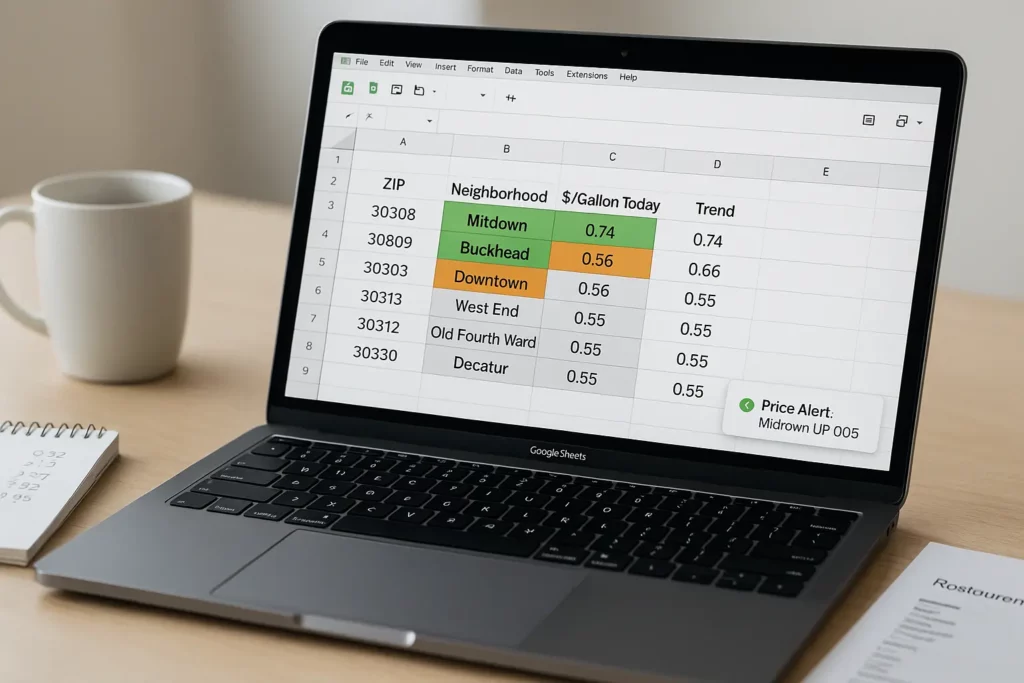
Neighborhood Snapshot: Expanded Atlanta Metro Price Grid
Chefs asked for finer detail, so here’s today’s eight zone readout captured from three licensed haulers and the Grease Connections spot feed at 9 a.m. Kitchens moving at least thirty gallons a month can use the mid point column for a quick invoice check, but watch the “High” column. Those peaks pop whenever soybean oil flirts with eighty cents a pound or a carrier needs volume to top off a truck. Buckhead still wins on hotel grade clarity, while Old Fourth Ward edges up on festival weekends. Suburban Sandy Springs trails because many drops contain blended animal fats. Expect West Midtown and Downtown to tighten toward sixty cents as stadium traffic ramps. Update your forecast sheet weekly; a five cent swing on eighty gallons is forty extra dollars you can funnel back into staff meals.
| Area | Range ($/gal) | Mid Point | 30 Day High | 30 Day Low |
|---|---|---|---|---|
| Midtown | 0.42 – 0.68 | 0.55 | 0.70 | 0.40 |
| Buckhead | 0.38 – 0.74 | 0.56 | 0.80 | 0.38 |
| Downtown | 0.40 – 0.62 | 0.51 | 0.66 | 0.39 |
| West Midtown | 0.37 – 0.59 | 0.48 | 0.63 | 0.36 |
| Old Fourth Ward | 0.35 – 0.57 | 0.46 | 0.60 | 0.35 |
| Decatur | 0.25 – 0.55 | 0.40 | 0.57 | 0.24 |
| College Park | 0.28 – 0.49 | 0.38 | 0.52 | 0.27 |
| Sandy Springs | 0.30 – 0.50 | 0.40 | 0.53 | 0.29 |
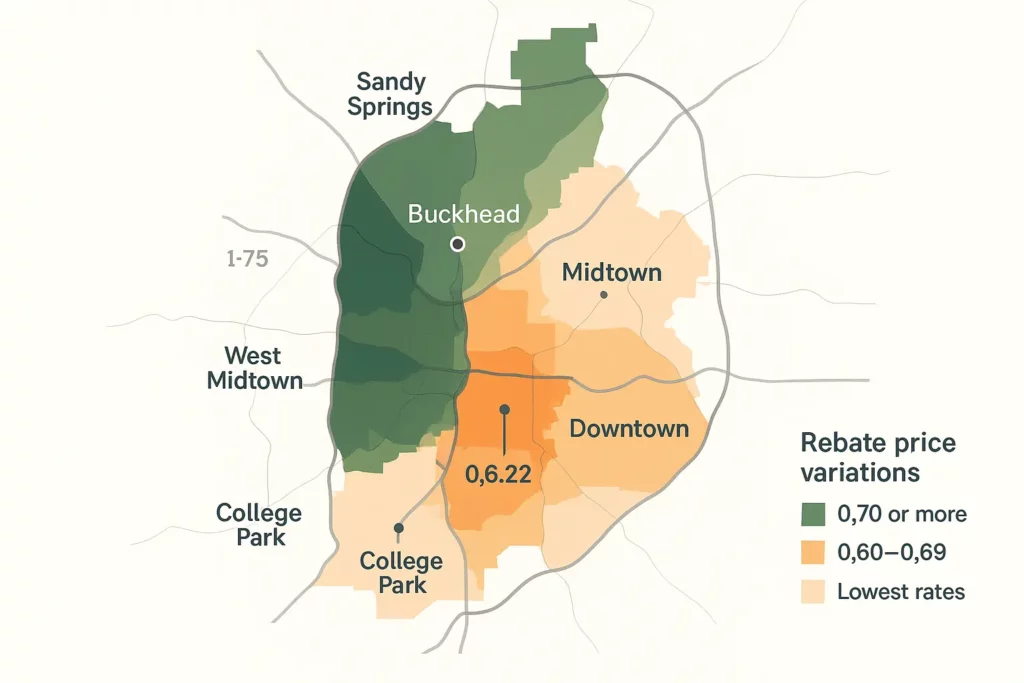
Profit Forecast Sheet: Turn Market Data Into Cash Flow
Click the “Forecast” tab inside the dashboard to open a templated calculator. Enter your weekly gallon output, select your ZIP code, and the sheet multiplies by today’s midpoint rate to show probable monthly cash back. Toggle the volatility slider to see best and worst case scenarios; the sheet graphs projected revenue next to disposal savings so finance can book the net benefit. Download a copy, plug it into your P&L, and hand the visual to ownership in under five minutes, no spreadsheet acrobatics required.
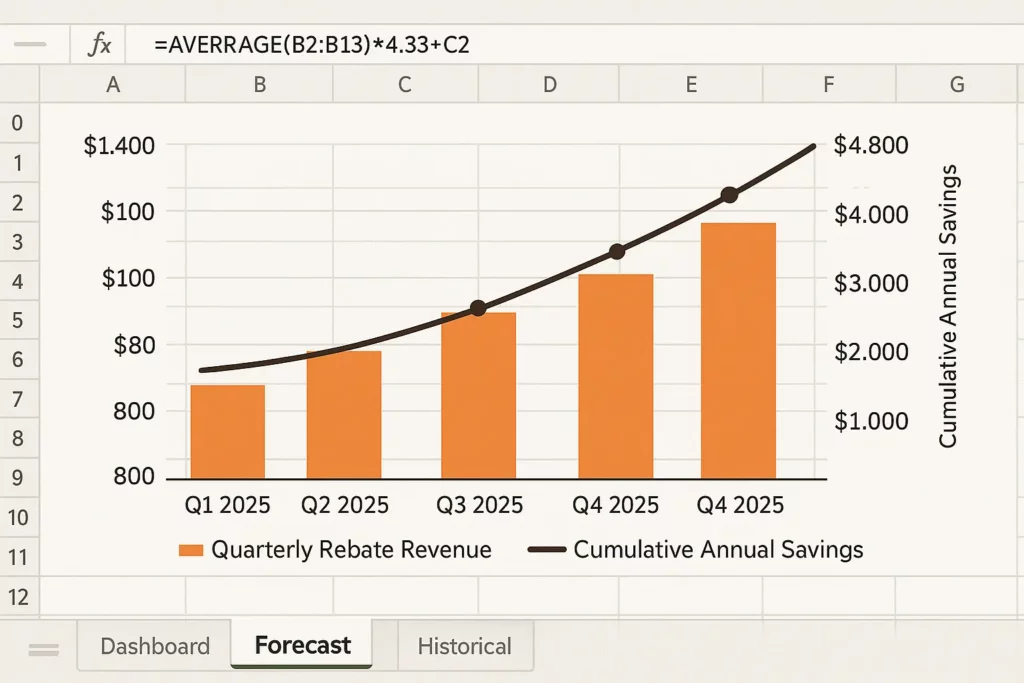
What Drives The Per Gallon Rate
Rebates hinge on three levers: biofuel demand, commodity feedstock costs, and oil quality. When biodiesel’s federal blending credit renews, Atlanta processors pivot to yellow grease and push rates north of fifty cents. Soybean futures ripple through the price too, each ten cent climb in bean oil adds roughly three cents to local rebates. Lastly, clarity counts: water, breading, or soap cuts the grade and can turn a payout into a fee. Filter nightly, keep lids tight, and log temperatures below 120 °F before transfer to lock in the highest tier.
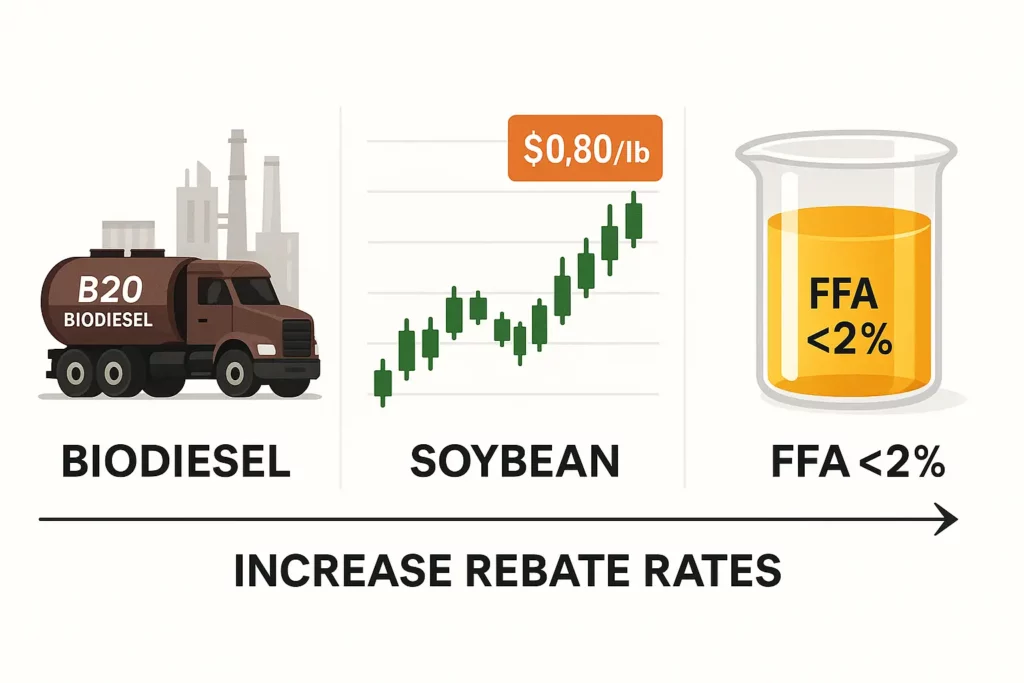
Negotiation Playbook: Lock In The Top Tier
- Step one: screenshot your ZIP’s highest paying hauler from the dashboard and email three local collectors for a match or beat quote.
- Step two: offer a 90 day trial instead of a year long contract; haulers bid harder when they know you can switch before the next commodity rally.
- Step three: request a “clarity premium” audit. If your oil tests below 2 percent FFA they’ll often tack on an extra nickel per gallon.
Finally, bundle grease trap pumping; carriers save a truck roll and usually rebate a share back to you. Follow these steps and most kitchens jump one tier within two billing cycles.

Compliance Made Simple: Paperwork & IRS Tips
Fulton County inspectors ask for manifests showing every pickup. Your hauler’s digital ticket satisfies the county and doubles as proof of recycling for Section 45Z clean fuel tax credits. Store PDFs in a cloud folder called “FOG Docs 2025,” and set a quarterly reminder to export the totals. Schedule C filers can deduct hauling charges, while multi unit groups may claim Biodiesel Mixture Credits if they fuel back of house equipment onsite. Miss a manifest and fines start at three hundred dollars, rising to nine hundred on repeat; keep digital backups and you’ll breeze through audits.
| Document | Agency | Fine if Missing | Storage Tip |
|---|---|---|---|
| Pickup Manifest | Fulton County FOG | $300-$900 | Auto save to Google Drive |
| EPA ID Form | Georgia EPD | $0 but inspection repeat | Bookmark renewal link |
| IRS Credit 637N | IRS | Credit forfeited | Share with accountant |
Chef Story: Rhodes Bakery Banks $380 A Quarter
Rhodes Bakery in Buckhead once paid sixty dollars a month to dispose of fryer shortening. After switching to filtered canola and using the dashboard to time pickups, they now average a sixty three cent rebate. With 150 gallons a quarter, the bakery nets $380 every three months, enough to buy a new proofing cabinet this spring. Owner Tiffany Rhodes keeps the profit forecast sheet on her phone and renegotiates every six months, proving even small footprint kitchens can turn grease into growth.
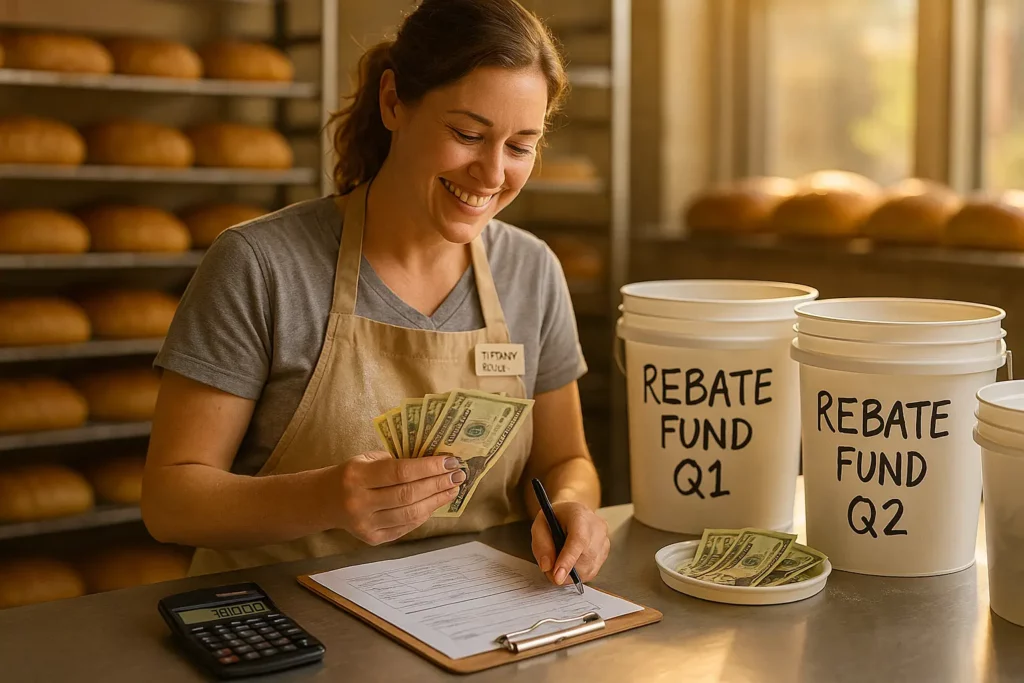
Next Step
Download the live dashboard, copy your forecast sheet, and schedule your first price match call today. In one hour you’ll know exactly what your grease is worth, how to claim it, and where to bank the savings, leaving more time to focus on food, not fat.









